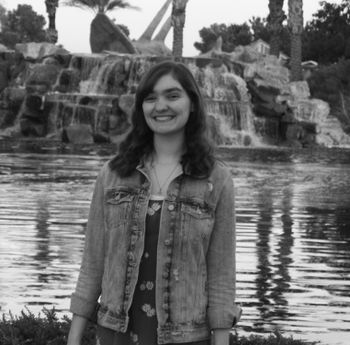Kamala Harris discusses abortion access with university leaders
On Aug. 8, Vice President Kamala Harris met with university leaders to discuss abortion access on campuses nationwide in the wake of the overturn of Roe v. Wade.
Oberlin College and Conservatory President Carmen Twillie Ambar said the Court’s decision demonstrates 'growing issues of inequity.'
On Aug. 8, Vice President Kamala Harris and Secretary of Education Miguel Cardona met with college and university leaders to discuss abortion access on campuses nationwide in the wake of the overturn of Roe v. Wade.
She commended the university leaders—representing the University of California-Irvine, Tennessee State University, Dartmouth College, City University of New York, and others—for taking steps to ensure abortion access at their respective schools, such as by providing “emergency funds” for “care,” and “flexible attendance and leave policies” for students to get abortions.
Many of these schools issued statements supporting abortion following the Dobbs decision.
Harris also emphasized the Biden Administration’s staunch support for abortion, referencing two executive orders issued in response to the overturn of Roe.
The first, issued on July 8, promises that the President will do “everything in his power to defend reproductive rights,” including expanding chemical abortion access.
The second, issued on Aug. 3, directs the Department of Health and Human Services (HHS) to open Medicaid funds to citizens for out-of-state abortion travel.
[RELATED: Students support pro-life Michigan football coach]
Secretary Cardona then offered his perspective on the issue, charging the Court’s decision with having “the potential to hurt students, faculty, and staff in our nation’s higher education institutions.”
“Many colleges and universities are also concerned about how the decision will impact their medical teaching, their research, their ability to serve their communities,” he continued. “It has the potential to prevent them from doing what they do best.”
Ted Mitchell, President of the American Council on Education, asserted that “[t]he Dobbs decision has created one more barrier” to universities addressing “the mental health needs” of students, seemingly implying that abortion is one of many ways to address mental health issues.
University and college representatives were then given a chance to speak.
Oberlin College and Conservatory President, Carmen Twillie Ambar, said the Court’s decision demonstrates “growing issues of inequity.”
“At Oberlin College, we are the nation’s first institution to be coeducational and we are the first predominantly white institution to fully admit Black students, so the Dobbs decision is about more than a woman’s right to choose for Oberlin’s campus; it is about the fundamental and growing issues of inequity that this decision portends,” she said.
Audrey Bilger, Reed College President, said her college is “acutely aware” that future Supreme Court decisions “could further erode the right to privacy by potentially restricting access to contraception, or invalidating marriages between same-sex couples, or criminalizing homosexuality, or permitting the persecution of transgender and gender non-binary people.”
[RELATED: ‘Absolutely unethical’: Required medical training in abortion-ban states criticized]
Justice Samuel Alito, writing for the majority in the Dobbs decision, clarified that the Court’s reasoning should not be construed to have any bearing on any of these other rights.
“Roe’s defenders characterize the abortion right as similar to the rights recognized in past decisions involving matters such as intimate sexual relations, contraception, and marriage, but abortion is fundamentally different, as both Roe and Casey acknowledged, because it destroys what those decisions called ‘fetal life’ and what the law now before us describes as an ‘unborn human being,’” Alito explained.
Despite the text of Dobbs, Gallaudet University President Roberta Cordano registered the same concerns in an email to students following the decision.
The Aug. 8 roundtable discussion was one of several Harris has hosted since the overturning of Roe.
Campus Reform reached out to every university mentioned. This article will be updated accordingly.

